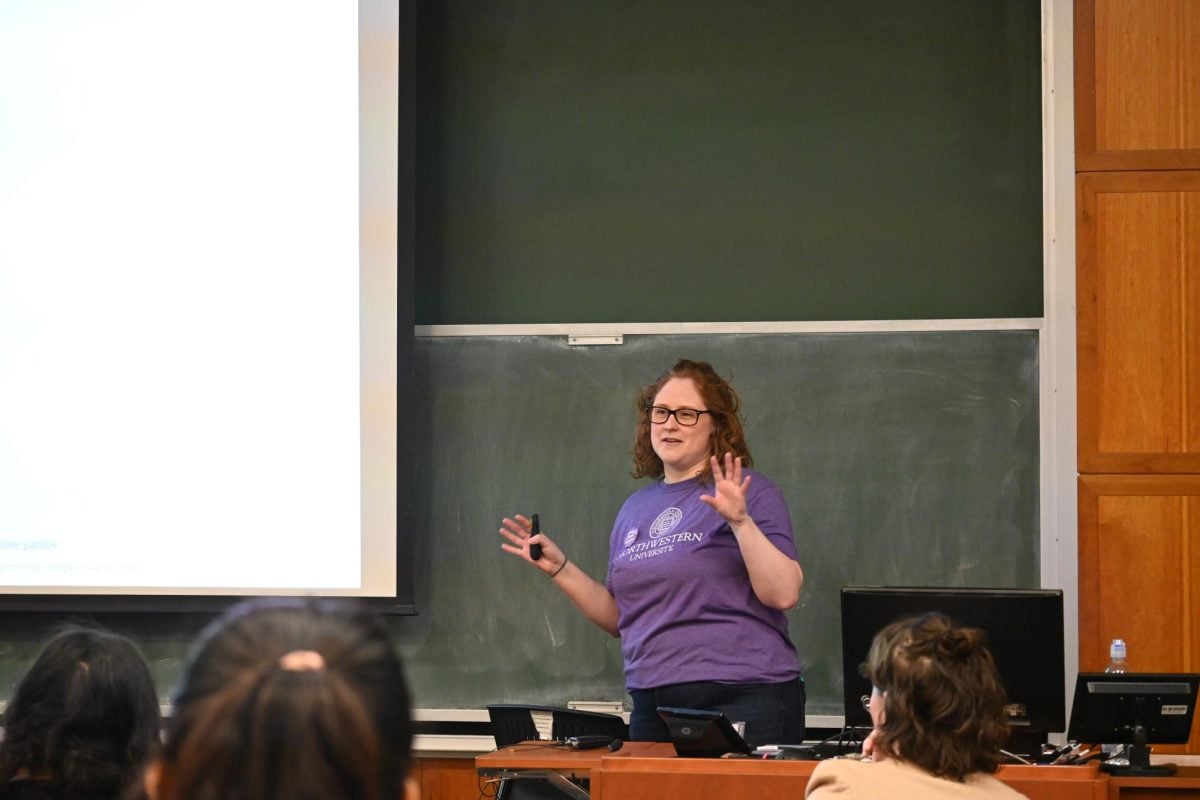Video by Jim Sannes/The Daily Northwestern
High-quality elementary and middle school teachers can have long-term positive effects on their students academically, professionally and even socially, according to a study published last month.
“It definitely makes a lot of sense,” said SESP sophomore Alexandra Bragorgos, who said she hopes to pursue a career as a middle school teacher. “I was really fortunate to have really great teachers. They placed an obvious importance on education, but it wasn’t like they just taught school. They taught life.”
The report, which monitored 2.5 million students over 20 years, rated teachers based on their ability to improve students’ test scores, a method known as the “value-added” (VA) approach.
The authors of the paper, Harvard professors Raj Chetty and John Friedman and Columbia professor Jonah Rockoff, concluded students who had teachers with high VA scores were more likely to go to college, as well as earn substantially higher salaries.
“Great teachers create great value – perhaps several times their annual salaries and that test score impacts are helpful in identifying such teachers,” the report stated.
Furthermore, the study found teachers influenced non-academic aspects of students’ lives as well. Students with better teachers had lower rates of teen pregnancy, resided in nicer neighborhoods and saved more for retirement. According to the study, having a high-quality teacher for one year results in $50,000 more in a student’s collective lifetime earnings.
The study contributes to the debate over using test scores as a quantifiable way to measure teacher quality. The report addressed how some critics maintain students’ test scores do not accurately reflect the quality of their teachers. The results of the study showed, however, that students’ scores rose immediately when a high VA teacher joined their school and also fell when that particular teacher left.
SESP Prof. Diane Schanzenbach, a, member of the National Bureau of Economic Research, conducted similar research last year with Chetty and Friedman, more specifically on the effectiveness of kindergarten teachers.
This particular study examined how kindergarten classroom experiences affect students’ earnings later in life and found that students who were assigned to more experienced teachers ultimately had higher salaries and college attendance rates.
“The two papers together really demonstrate quite convincingly that a good teacher makes a lifetime impact on his or her students,” Schanzenbach said.
By indicating that student performance can be positively affected up through middle school, Schanzenbach said the study shows schools need to focus their efforts on cultivating students during these years, when they are especially receptive to “positive intervention.”
Weinberg freshman Rabeya Mallick, who attended elementary, middle and high school in Naperville, Ill., said teachers can have a big impact on students, especially when they are younger, as students look up to them as mentors.
Not only that, but Schanzenbach said teachers play an important role in shaping students’ interpersonal and social skills. Traditional skills like reading and math are important, Schanzenbach said, but there also must be room for teachers to emphasize the importance of working and communicating with others.
“A good teacher would not only focus on the grades and the tests scores, but also what’s going on around these kids and how to relate their lessons to the kids’ lives,” Bragorgos said.
Schanzenbach said the research is very relevant to SESP students, who often enter jobs that require teaching in low-income, “hard-to-teach” areas.
“It’s really awesome to think that I can have that kind of an impact on someone,” Bragorgos said. “It gives me the motivation to work really hard and put motivation into what I’m doing.”
While researchers have yet to determine what exactly constitutes a “good” teacher, Schanzenbach said almost everyone can think of a teacher who has had a long-term influence on them.
“I don’t understand the mechanisms, but boy, when you go into a classroom, you can see what a good teacher is,” Schanzenbach said.







